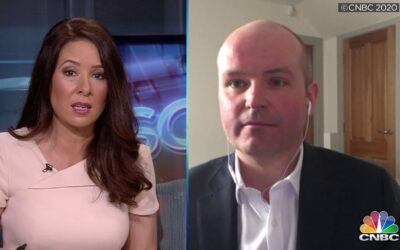19/06/20204 mins
The people’s QE: another ‘new normal’?
“There are decades where nothing happens; and there are weeks where decades happen”
Lenin
The coronavirus is an enormous human health challenge which is likely to remain a scourge for some time. Nevertheless, the virus will eventually be brought under some form of control and the world will adopt a new form of ‘normal’. There are many opinions on what the new normal might involve but from an economic and stockmarket perspective, there have already been some developments which are likely to have far reaching implications.
The lockdown measures enacted to combat the virus prompted the steepest stockmarket decline in decades and what is likely to prove the worst decline in economic activity since the 1930s Great Depression. Governments have effectively moved to a wartime economic footing because, directly or indirectly, almost every part of the economy required some form of bailout.
It has been apparent for some time that the stimulus measures applied since the financial crash of 2008/9, specifically very low interest rates and quantitative easing (QE), have been a far greater boon to ‘Wall Street’ than ‘Main Street’. When combined with a deflationary pressure on wages, caused by an increasingly globalised economy, the gulf between the ‘haves’ and ‘have nots’ has widened.
Some politicians have suggested that the solution to this inequality was to create a new form of stimulus, to be known by names such as ‘the People’s QE’, ‘a universal basic income’ or even ‘helicopter money’, that would inject money directly into people’s pockets. This strategy was to be financed using Modern Monetary Theory (MMT), which posited that the finances of a sovereign country need not be managed in the manner of a household and, as such, there is no need to attempt to balance the books. With the defeat of Jeremy Corbyn and Bernie Sanders in their respective endeavours, it seemed that such schemes would not see the light of day. However, given the measures adopted by almost every government in recent weeks, perhaps these gentlemen were merely slightly ahead of their time.
Meanwhile, a further lesson from the current crisis has been the catastrophic failure of global supply chains to deliver critical equipment in a timely manner. It would appear that when the chips are down, each country will primarily look after their own. In the future, countries are likely to rely less heavily on cross border supply chains with the expansion of an indigenous manufacturing base perhaps seen as a strategic imperative.
Navigating the crisis
I had been due to travel to Japan in February and, perhaps because of this, we took particular note of the unknown virus that appeared to be causing misery in China, eventually forcing an effective shutdown of its economy.
Strangely, even though this outbreak was widely reported, as was the fact that the virus had spread internationally, markets seemed relatively unconcerned. As contrarians, we always look for situations where the consensus view looks wrong and were puzzled by this degree of complacency.
We reasoned that it was possible that other countries would be forced to enact the type of lockdown measures being seen in China. Our aim is always to have a degree of downside protection with our investments and when we reviewed our portfolio with this possibility in mind, we considered that for our holdings that relied on discretionary spending it would be impossible to have confidence in their future earnings profile. In fact, for these companies, a shutdown could potentially destroy sales, wipe out profits, imperil dividends and even threaten their ongoing viability. Cheapness would, therefore, likely be illusory. Survival and capital preservation seemed more important factors.
As the news worsened, and we became convinced that lockdowns would indeed be implemented in Western markets, we reduced our holdings in companies which we thought would suffer in this dire situation, while adding to the companies we thought would prove relatively resilient. Our portfolio was generally conservatively positioned but, these changes were made with the aim of sheltering capital thereby maximising our ability to participate in the eventual rebound.
Alasdair McKinnon
Manager
15 June 2020
Please remember that past performance may not be repeated and is not a guide for future performance. The value of shares and the income from them can go down as well as up as a result of market and currency fluctuations.
Please note that SIT Savings Ltd is not authorised to provide advice to individual investors and nothing in this article should be considered to be or relied upon as constituting investment advice. If you are unsure about the suitability of an investment, you should contact your financial advisor.



